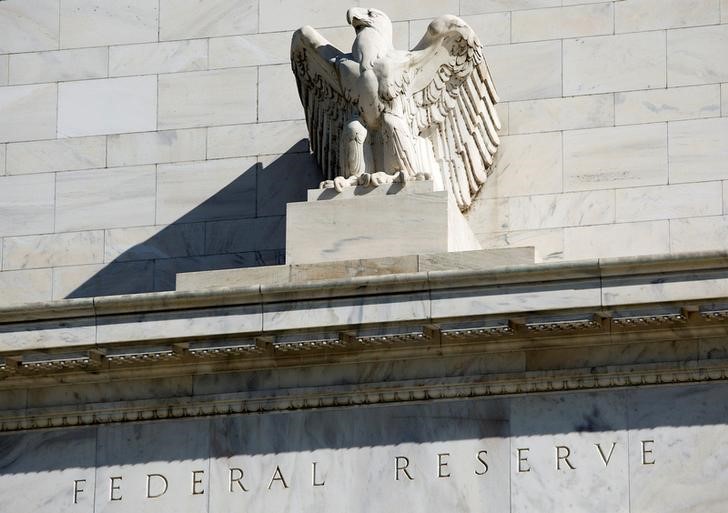By Jessica DiNapoli
NEW YORK (Reuters) - As the era of cheap money gradually draws to a close and rising inflation and interest rates cast a shadow over Wall Street's nine-year bull market, one corner of the financial industry is cheering.
Debt restructuring experts are gearing up for a pickup in business, expecting more debt defaults and more financial stress in general ahead, an ominous sign for investors already rattled by last month's stock market sell-off.
Restructuring advisors at several firms told Reuters they were more optimistic now than at any time since the 2008 financial crisis, and have started preparing for a wave of debt overhauls that could begin in earnest as early as 2019 and last for years.
"We are recruiting heavily, junior people, MBAs, operational people... We are seeing significant growth and significant hiring," said Lisa Donahue, global leader of the turnaround and restructuring practice at consulting firm AlixPartners LLP.
That confidence reflects the view that rising interest rates will make it harder for struggling companies to borrow more or roll over their debt, as the era of abundant cheap credit fuelled by the Federal Reserve's zero-rate policy and its asset buying draws to a close.
Restructuring professionals also point to outflows from the junk bond market, a key funding source for less creditworthy borrowers, and creeping inflation, which slowly results in an across-the-board rise in costs for companies. U.S. President Donald Trump's trade tariffs announced earlier this month could exacerbate these inflationary fears.
At one of the corporate restructuring industry's biggest annual gatherings last month in Las Vegas, many participants spoke of reaching a turning point after several lean years.
"I think it's starting to turn," Michael Goodman, managing director at investment bank SSG Capital Advisors LLC, told Reuters after the conference of the Turnaround Management Association and the Commercial Finance Association.
"In the last five years, if companies had a credit issue, they solved the problem with new debt. They won't be able to do that anymore, and the outcomes are debt restructurings and (distressed) sales," he said.
This optimism stands in stark contrast with the apprehension in other parts of Wall Street. Investment bankers advising companies on mergers and acquisitions have been cheering on the buoyant markets as good for their business. For restructuring specialists, however, the years of cheap credit were the lean times.
As companies took advantage of record-low borrowing costs to refinance hundreds of billions of dollars in junk-rated corporate debt in the last six years, the number of announced debt restructuring deals nearly halved to 144 deals last year from 282 in 2009, according to Thomson Reuters data.
(Graphic: http://tmsnrt.rs/2FjHhMz )
There is no industry-wide employment data, but membership in professional associations tumbled. The number of the Turnaround Management Association members fell 23 percent to 6,190 in 2016 from its peak in 2009, according to its most recent data.
The Association of Insolvency and Restructuring Advisors saw its membership plunge by 40 percent to 1,403 last year from its high in 2010.
While those numbers have yet to recover, a pickup in enrolment in professional courses is an early sign that the industry is on the mend.
Tom Morrow, who is executive director of the Association of Insolvency and Restructuring Advisors, and one of the top providers of training courses for the industry, said attendance jumped by 28 percent last year to 299 students, recovering from a post-recession trough.
"Firms are starting to hire again," he said.
STRAIN BEGINS TO SPREAD
The industry made it through the lean times thanks energy sector debt defaults brought by a 2014 slump in oil prices followed by a wave of retail bankruptcies caused by the rise in online shopping and Amazon.com Inc's (O:AMZN) expansion.
Now signs of strain begin to emerge in other sectors. Community hospital operator Community Health Systems Inc (N:CYH) saddled with about $14 billion in debt, faces significant annual maturities over the next few years, as interest rates begin to rise. Miner Murray Energy Corp, which weathered a rout in coal prices, has seen its 2021 bonds dip nearly 20 percent from earlier this year to about 44 cents on the dollar.
In another promising sign for the restructuring business, U.S.-based junk bond funds have been experiencing net outflows for eight straight weeks, the longest such streak since 2007. So far this year, outflows have reached $13.73 billion, up from only $743 million a year ago.
The average yield on junk bonds has risen to 6.2 percent from 5.4 percent in October 2017, though that is still below the double-digit levels seen in February 2016 after the energy market rout, according to Bank of America Corp (N:BAC) data.
To be sure, not all ailing companies will be on the hook right away. While some, such as Claire's Stores Inc, face significant debt maturities in 2019, other have refinanced their debt pushing payments as far back as 2024 and 2025, according to Eric Rosenthal, senior director of leveraged finance at Fitch.
However, some already seek help in revamping their businesses to avoid a full-blown debt crisis later on.

"There is a willingness to say 'hey, we need to get out in front of the curve, we need to make sure we are not the example in our industry that doesn't make it,'" said Brian Fox, a managing director at consulting firm Alvarez & Marsal Holdings LLC, which serves as operational consultants.